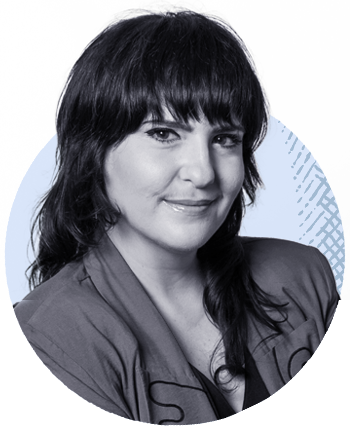Making history once in a lifetime is as rare as it is major. For Lauren Simmons, it’s becoming a habit.
In 2017, at 22 years old, Simmons became the youngest person to trade on the New York Stock Exchange. She was also the second-ever Black woman to work there full time. By the time she left Wall Street in 2018, Simmons was a bona fide celebrity… with a movie deal to boot.
And Simmons isn’t finished shifting the money world toward positive progress yet. Today, she’s a 28-year-old financial wellness expert committed to a long-haul goal: She wants to close the gap in generational wealth — the property, investment funds, stocks and other financial assets owned and passed down family lines — between communities of color and their white counterparts.
“That’s the dream,” Simmons says. According to one estimate, Black households have a median wealth of $24,100 compared to white households’ $189,100. But a couple decades from now, she hopes, “we’ll see generational wealth actually happen.”
The approach Simmons takes is uniquely her own because it relates directly to her experience on the trading floor. What she learned she’s carried into multiple channels, from podcasts (her own on Spotify, plus guest spots on many others) to speaking engagements and regular contributions to CNBC. She’s also partnered with investing companies like Robinhood and BlackRock; through the latter, she helps NBA prospects master the game of long-term investing. Next fall, she’s releasing her first book, Mind, Body, Wealth, via HarperCollins.
Throughout these endeavors, which also include a strong Instagram presence (73,000 followers and counting), Simmons teaches economic empowerment to scores of people.
Right now, she’s focusing on fighting the persistent taboo against talking about salary and compensation in the workplace. It’s another principle that Simmons learned firsthand. While at the NYSE, her entry-level salary was $12,000 — but she found out through talking with other traders that similarly qualified people employed by other firms were paid $120,000 and up.
Simmons is quick to clarify that traders at her firm, Rosenblatt Securities, were, across the board, on par with her own. Her point stands, though, that salary transparency is crucial.
“Having those open conversations is the way to get ahead,” she says.
Underscoring Simmons’ coaching is an emphasis on the intersection of financial wellness and physical and mental health. Prioritizing happiness is in part why, rather than switch firms, she walked away from Wall Street altogether.
“Do I want a life where I'm unhappy but I make a lot of money?” Simmons recalls asking herself. “Or do I want a life where I feel fulfilled, and I feel passionate, and I love what I do?”
When she resigned, several big firms offered her a job — but most told her that under their employment, she couldn’t “be her own brand.” This would have drastically limited, if not totally eliminated, the possibility of many financial-wellness-for-all pursuits Simmons held dear. And so she turned them down.
Simmons says she realizes that a decision like this isn’t possible for everyone. But she’s come to understand the knowledge she has to offer — and that sharing her experiences could result in life-altering improvements for everyday people.
Next up: The film based on her life, which she’s co-producing alongside AGC Studios. (Tentatively titled Midas Touch, it’s set to star Grammy Award nominee Chloe Bailey.) Though the movie is still in development, it’s no stretch to expect it’ll be yet another source of financial empowerment for others, especially for women and people of color.
“Sometimes we don’t realize what our dreams are or what we want to do until we see someone else do it,” Simmons says. “And then the idea comes into our mind, and we think, ‘I could do that. I could be that.’”






